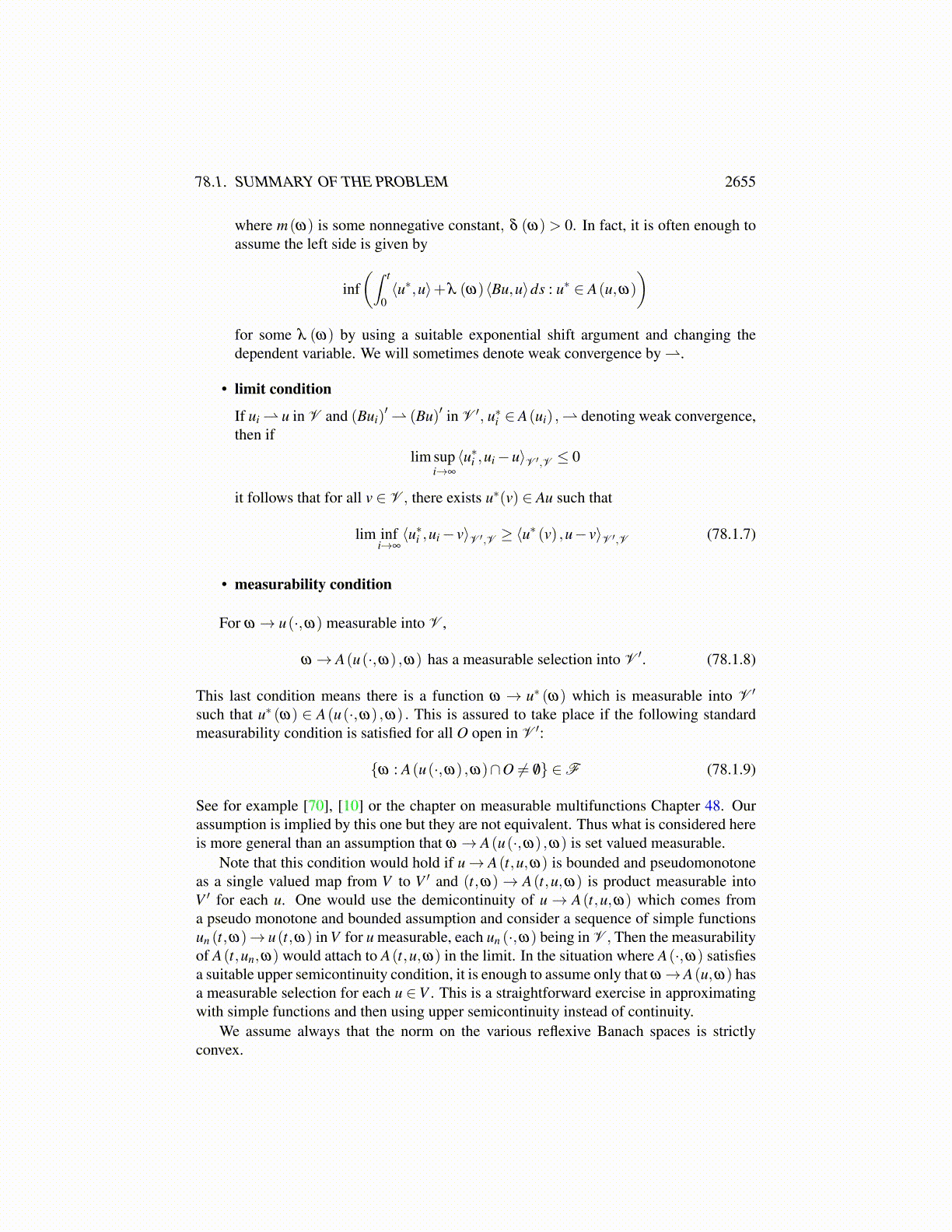
Chapter 78
A Different Approach78.1 Summary Of The Problem
The situation is as follows. There are spaces V ⊆W where V,W are reflexive separableBanach spaces. It is assumed that V is dense in W. Define the space for p > 1
V ≡ Lp ([0,T ] ;V )
where in each case, the σ algebra of measurable sets will be B ([0,T ]) the Borel measurablesets. Thus, from the Riesz representation theorem,
V ′ = Lp′ ([0,T ] ;V ′) ,We also assume (Ω,F ) is a measurable space. No measure is needed. Also
V ⊆W, W ′ ⊆V ′, V dense in W,
B(t) will be a linear operator, B(t) : W →W ′ which satisfies
1. ⟨B(t)x,y⟩= ⟨B(t)y,x⟩
2. ⟨B(t)x,x⟩ ≥ 0
3. B ∈C1 ([0,T ] ;L (W,W ′)) so in particular, the time derivative is bounded.
In the above formulae, ⟨·, ·⟩ denotes the duality pairing of the Banach space W, with itsdual space. We will use this notation in the present paper, the exact specification of whichBanach space being determined, by the context in which this notation occurs.
For example, you could simply take W = H = H ′ and B the identity and consider astandard Gelfand triple where H is a Hilbert space and B equal to the identity.
The product measurable sets are those in the smallest σ algebra which contains themeasurable rectangles B×A where B∈B ([0,T ]) , A∈F . The paper is about the existenceof product measurable solutions to the system
(Bu(·,ω))′+u∗ (·,ω) = f (·,ω) in V ′
Bu(0,ω) = Bu0 (ω) (78.1.1)u∗ (·,ω) ∈ A(u(·,ω) ,ω) . (78.1.2)
The evolution inclusion is well understood for fixed ω. However, we will show the ex-istence of a solution u, u∗ such that (t,ω)→ u(t,ω) and (t,ω)→ u∗ (t,ω) are productmeasurable in this solution. Essentially, we show the existence of a measurable selection inthe set of solutions. There are no assumptions made on the measurable space. It is just a setwith a σ algebra of subsets. Essentially this involves showing that the usual limit processespreserve measurability in some sense. The main theorems in this paper are essentiallymeasurable selection theorems for the set of solutions to these implicit inclusions.
2655